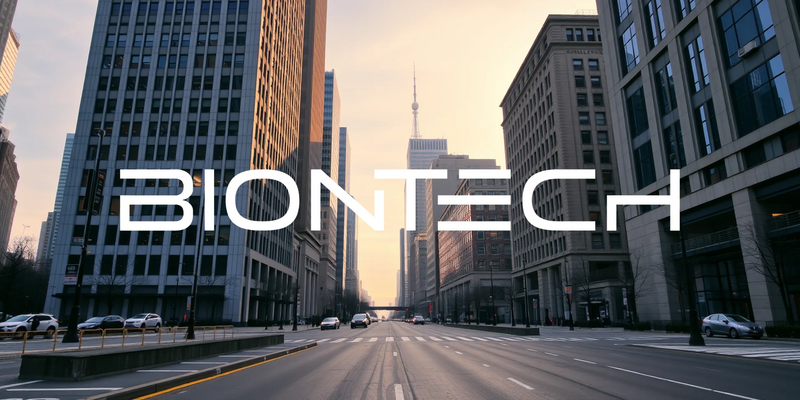BioNTech’s Strategic Pivot: From Pandemic Success to Oncology Innovation
17.11.2025 - 17:01:05BioNTech US09075V1026
The biotech firm that captured global attention during the COVID-19 crisis is now executing a dramatic strategic shift. BioNTech, once synonymous with coronavirus vaccines, is channeling its resources toward establishing a dominant position in cancer therapeutics. This transition comes as the company's shares have declined more than 20% since January, yet market analysts maintain confidence in its long-term prospects.
Market experts continue to endorse BioNTech despite challenging equity market conditions. Berenberg Bank recently reaffirmed its "Buy" recommendation with a price target of $150, suggesting potential appreciation exceeding 45% from current trading levels. The consensus among analysts averages $117 per share, with projections ranging from $99 to $171.
The company's financial position remains robust, with liquid resources totaling €16.7 billion providing substantial runway for clinical development programs. Management has demonstrated improved operational efficiency by revising research expenditure forecasts downward while still advancing their therapeutic pipeline.
Strategic Partnership with Bristol Myers Squibb
A significant development in BioNTech's transformation came through its high-profile collaboration with Bristol Myers Squibb. The alliance generated an upfront payment of $1.5 billion in the third quarter, with the total agreement value potentially reaching $11.1 billion over the long term.
Central to this partnership is pumitamig, an investigational cancer immunotherapy undergoing evaluation across multiple key indications. Early clinical data indicates anti-tumor activity in lung cancer patients, positioning BioNTech to compete directly with established oncology leaders like Merck's blockbuster therapy Keytruda. The collaboration enables both companies to explore combination therapies, representing a critical advantage in developing next-generation cancer treatments.
Should investors sell immediately? Or is it worth buying BioNTech?
Evolving Relationship with Pfizer
In a notable November development, Pfizer reduced its BioNTech stake by 54.7%. Despite this substantial divestment, operational cooperation continues uninterrupted. A BioNTech spokesperson emphasized that "we continue to have a close and strong collaboration" with Pfizer.
Their joint COVID-19 vaccine Comirnaty generated peak revenues of $37.8 billion during the pandemic. While those extraordinary sales levels have normalized, the partnership remains focused on updated vaccine formulations and pandemic preparedness, maintaining strategic importance despite the altered financial relationship.
Transformation Evidence and Pipeline Development
BioNTech's evolution from vaccine specialist to oncology-focused enterprise is showing tangible progress. Third-quarter revenues advanced 22% to €1.52 billion, primarily driven by collaboration income rather than vaccine sales—a clear indicator of strategic transition.
The company's development pipeline now encompasses multiple therapeutic approaches, including mRNA-based immunotherapies, bispecific antibodies, and antibody-drug conjugates. This diversified research strategy represents BioNTech's comprehensive approach to cancer treatment development.
The fundamental question remains whether BioNTech can successfully navigate the transition from its declining vaccine business to establishing a sustainable oncology portfolio. The strategic foundation has been established—now the company must demonstrate that its pipeline can deliver clinical and commercial success.
Ad
BioNTech Stock: Buy or Sell?! New BioNTech Analysis from November 17 delivers the answer:
The latest BioNTech figures speak for themselves: Urgent action needed for BioNTech investors. Is it worth buying or should you sell? Find out what to do now in the current free analysis from November 17.
BioNTech: Buy or sell? Read more here...


